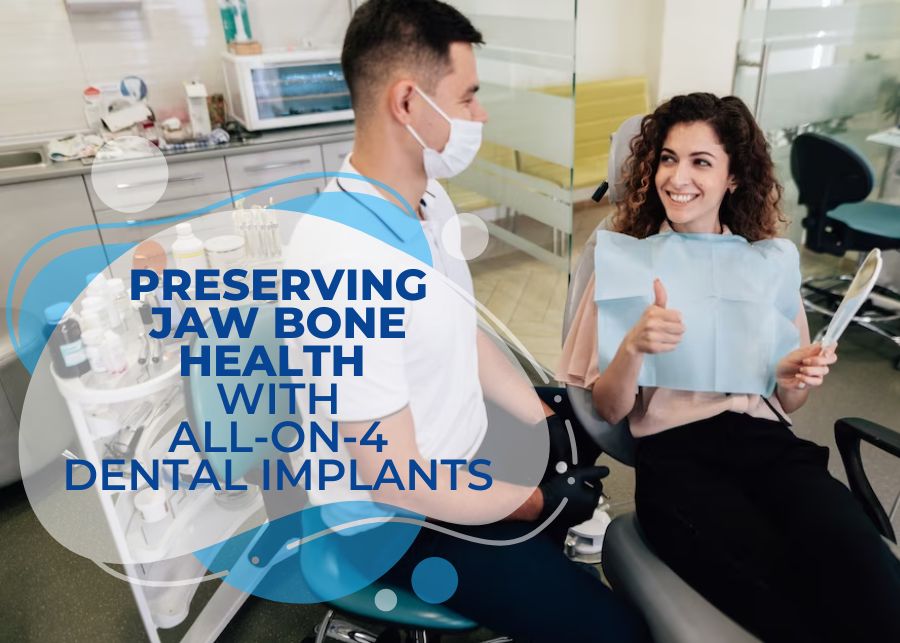Jaw bone loss is a common problem after losing a tooth. This is a very serious medical condition, as it can not only cause the patient pain but also prevent them from being able to chew correctly and, in serious cases, cause the shape of the patient’s face to change.
When receiving restorative dental services, such as the All-on-4, one of the most popular topics of discussion is jaw bone deterioration. One of the most often-advertised benefits of implants is their ability to stop it.
Let’s dive into the remarkable ways All-on-4 implants combat jawbone deterioration. But before we unveil their magic, let’s unravel the root cause of this jaw-dropping concern:
When teeth are missing, the alveolar bone—your teeth’s trusty anchor—misses out on its crucial role and starts a downhill slide into deterioration. As the body shrugs off the once-vital status of the jawbone, a sneaky process of degradation and downsizing takes center stage.
How Can All-on-4 Prevent Bone Deterioration?

When a patient loses a tooth, the root of the tooth no longer transmits the pressure and force of biting, chewing, and smiling into the jawbone. Therefore, the bone below the missing tooth will begin to deteriorate and waste away when it is not stimulated.
Dental implants bond permanently with the jaw bone and gums through a process called osseointegration.
The osseointegration lets new bone growth integrate around the implants and complete the healing process.
Once the healing process concludes, the implant will operate similarly to a real tooth. As the patient chews and bites, the pressure exerted on the implant is directly transferred to the jawbone, generating stimulation that safeguards it from degradation.
Why is it Important to Replace Missing Teeth Quickly?
It’s important to replace missing teeth quickly in order to prevent bone loss.
When a tooth goes missing, the jawbone beneath it can shrink by up to 25% within just a year. Waiting too long to get a dental implant could weaken your jawbone, making it unable to properly hold the implant.
In some cases, you might need another surgery, like a bone graft or sinus lift, to strengthen the jawbone before getting the implant. This means a more complicated and expensive procedure, and it will take longer to fix your tooth.
Using advanced technology and techniques, we create the smile you want with long-lasting dental materials and outstanding aesthetic results.
Contact The All on 4 experts in Parker Dental Implant and Specialty Center, call 720-522-2000, or visit us at 11005 S Parker Rd. Parker, Colorado.

